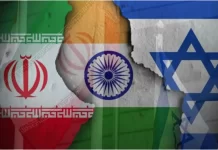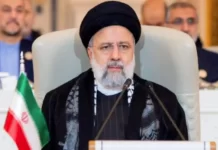Chief Minister Mamata Banerjee’s Call for Opposition Unity in Patna
In a bold move aimed at countering the Bharatiya Janata Party’s (BJP) dominance, Chief Minister Mamata Banerjee of West Bengal confidently declared that opposition leaders were converging in Patna with the aim of collectively combating the BJP ‘like a family’. The seasoned politician made this announcement while speaking to reporters outside the residence of Bihar Deputy Chief Minister Tejashwi Yadav, where she had a meeting with his father and Rashtriya Janata Dal (RJD) president, Lalu Prasad.
Chief Minister Mamata Banerjee’s statement about opposition leaders gathering in Patna to combat the BJP has sent ripples through the political landscape. Her call for unity in the face of a powerful ruling party has sparked conversations about the possibility of a formidable opposition force emerging in Indian politics. In this article, we will delve into the significance of opposition unity, the challenges it may face, and the role of Mamata Banerjee in leading this initiative.
The Importance of Opposition Unity
In a vibrant democracy like India, a strong and effective opposition is vital for maintaining a balance of power and ensuring accountability. Opposition parties play a crucial role in scrutinizing the government’s actions, highlighting shortcomings, and presenting alternative policies. However, fragmented opposition parties often struggle to pose a united front against a dominant ruling party, diluting their impact and weakening their influence.
Mamata Banerjee’s Call for a United Front
Recognizing the need for a cohesive opposition, Chief Minister Mamata Banerjee has taken the initiative to bring together like-minded leaders in Patna. By emphasizing the importance of collective action and unity, she aims to create a platform where opposition parties can coordinate their efforts, share resources, and leverage their collective strength to challenge the BJP’s political hegemony.
Challenges and Roadblocks
Uniting diverse political parties with varying ideologies, regional interests, and ambitions is no easy task. Differences in strategies, egos, and past rivalries often hinder opposition unity. Furthermore, the BJP’s formidable electoral machinery and its ability to tap into the growing popularity of its charismatic leader present significant challenges to any opposition coalition.
The Role of Regional Parties
Regional parties hold significant influence in Indian politics, and their cooperation is essential for the success of any opposition unity initiative. Mamata Banerjee’s outreach to leaders like Tejashwi Yadav and Lalu Prasad demonstrates her recognition of the role regional parties play in countering the BJP’s dominance. By forging alliances with influential regional leaders, Banerjee aims to create a broad-based opposition front capable of challenging the BJP’s stronghold in different states.
Strategies for Collective Action
To make opposition unity a reality, strategic planning and collaboration are crucial. Opposition parties need to identify common issues, formulate a shared agenda, and establish a coordinated approach to maximize their impact. Collaborative efforts in policy formulation, campaign strategies, and resource mobilization can amplify their collective voice and attract public support.
Building Momentum through Grassroots Campaigning
Engaging with the public at the grassroots level is a crucial component of opposition politics. Mamata Banerjee’s emphasis on connecting with people, addressing their concerns, and championing their causes resonates with the need for a bottom-up approach. By mobilizing support at the local level, opposition parties can build a strong foundation for their collective endeavor.
Nurturing Alliances and Coalition Building
Alliances and coalition building are vital for opposition unity. By establishing and nurturing strategic partnerships, opposition parties can pool their resources, share expertise, and expand their reach. Mamata Banerjee’s efforts to forge alliances with regional parties are a testament to her commitment to building a broad-based opposition front.
The Need for a Common Agenda
A shared vision and a common agenda are essential to sustain opposition unity. While respecting the diversity of ideologies and priorities among different parties, finding common ground on key issues such as social justice, economic reforms, and democratic values can create a cohesive narrative that resonates with the masses.
Overcoming Differences and Ego Clashes
One of the biggest challenges in opposition unity lies in overcoming internal differences and ego clashes. Mamata Banerjee’s leadership and her ability to foster a spirit of collaboration will be crucial in managing diverse personalities and reconciling conflicting viewpoints. Emphasizing the larger goal of countering the BJP can help subdue individual ambitions and foster a sense of collective purpose.
The Role of Mamata Banerjee
Mamata Banerjee’s active involvement and leadership in the opposition unity initiative are pivotal. As a seasoned politician with a strong grassroots support base, she brings both experience and popularity to the table. Her ability to connect with people, mobilize resources, and rally support will be instrumental in shaping the future of opposition politics in India.
Impact on Indian Politics
The emergence of a united opposition front can have far-reaching consequences for Indian politics. A strong opposition can challenge the ruling party’s policies, provide alternative visions, and create a more robust democratic discourse. It can also act as a check on the government’s power, ensuring accountability and preventing authoritarian tendencies.
Criticisms and Counterarguments
Opposition unity initiatives often face criticism and skepticism. Critics argue that diverse ideologies and regional interests may hinder effective decision-making and dilute the opposition’s impact. Additionally, the BJP’s formidable electoral machinery and strong leadership may pose significant challenges to any opposition coalition. However, proponents of opposition unity believe that the collective strength and shared purpose can overcome these obstacles.
Future Prospects of Opposition Unity
The success of the opposition unity initiative led by Mamata Banerjee depends on various factors, including sustained collaboration, effective communication, and the ability to garner public support. If opposition parties can overcome their differences, consolidate their strengths, and present a compelling alternative to the ruling party, the landscape of Indian politics may witness a significant transformation.
Conclusion
Chief Minister Mamata Banerjee’s call for opposition unity in Patna marks a significant development in Indian politics. By bringing together like-minded leaders and emphasizing the importance of collective action, she aims to challenge the BJP’s dominance ‘like a family’. The success of this initiative hinges on the ability of opposition parties to overcome challenges, nurture alliances, and forge a common agenda. If they can achieve this, the future of opposition politics in India could be revitalized, ushering in a more balanced and vibrant democratic discourse.


















